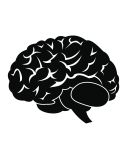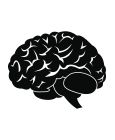Depression
Can Using the Pill in Adolescence Increase Depression Risk?
While cause-and-effect remains unclear, scientists are exploring an association.
Posted January 16, 2020 Reviewed by Matt Huston

By Mansee Khurana
In the United States today, more than 9 million women use one of the most popular forms of birth control: the pill. Developed in 1950, the birth control pill was a critical advancement in reproductive health, but it can also produce a variety of side effects, including weight gain and acne.
Recent research examines the possibility of another kind of side effect—a higher risk of depression later in life.
Using data from 1,236 women in the U.S. National Health and Nutrition Examination Survey, Christine Anderl of the University of British Columbia and her colleagues compared the outcomes of women who had never used the pill, women who reported first using the pill in their teenage years, and women who started after age 19. Overall, 131 of the women met the DSM-5 criteria for major depressive disorder (MDD) within the prior year when they were interviewed in adulthood.
Compared to those who had started using the pill in their teenage years, the researchers found, those who started using oral contraceptives later in life had about half the odds of meeting the MDD criteria. Women who had never used the pill had roughly one-third the odds. The findings were published in The Journal of Child Psychology and Psychiatry.
If use of the pill in adolescence does result in higher risk—something that can’t be proven using observational data such as those analyzed in the study—there are multiple potential explanations. Oral contraceptives suppress the body’s own production of hormones such as testosterone and estrogen, and it’s possible, the researchers suggest, that such changes during the important developmental period of adolescence could contribute to long-term increases in depression risk. Another possibility is that the synthetic hormones delivered by the pill, which are more potent than the naturally occurring versions, could play a role.
Previous research has identified an association between birth control and depression as well. A study of data from more than 1 million women living in Denmark found that adolescents using birth control pills showed a higher risk of subsequent antidepressant use and depression diagnosis. Greater risk was also observed in those who used other forms of hormonal contraceptives, such as an IUD or vaginal ring.
Despite these findings, Anderl urges caution, because it’s difficult for researchers to identify what exactly may be causing higher rates of depression in women who start birth control earlier in life. “Our study is just one piece of a much larger puzzle,” Anderl says. “There is still a lot of research that needs to be done to verify this link.”
That research is necessary before clinicians think about changing how they prescribe birth control, agrees Julia Potter, an assistant professor of pediatrics at Boston University School of Medicine who was not involved with the research.
“I would be very hesitant if the literature swayed a doctor or a provider to talk about birth control differently or to withhold a method,” Potter says. “I think [the latest study] goes into the pot of everything we know about birth control.”
One of the main concerns is that both depression and birth control use are common in teenagers, Potter says. More than two-thirds of antidepressants prescribed to teenagers are for girls, and she says that many of her patients are young girls using birth control for reasons other than to prevent an unplanned pregnancy. “I think that these are both such common occurrences that it’s hard to tease them apart,” Potter says.
While more studies are conducted, it’s important for young women not to stop taking birth control, but to discuss concerns they might have with their doctor, according to both Anderl and Potter. "[Teenagers] need to talk to their doctors about their specific situation,” Anderl says. “It’s important to discuss personal risk factors and potential benefits in order to decide whether hormonal birth control is the best choice for them.”
Mansee Khurana is a former Psychology Today Editorial Intern.




